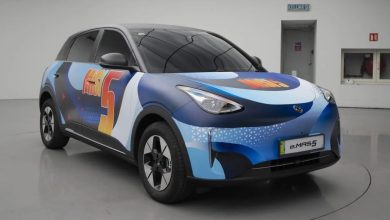Porsche Taycan takes to the Nardo circuit in a 24 hours speed run
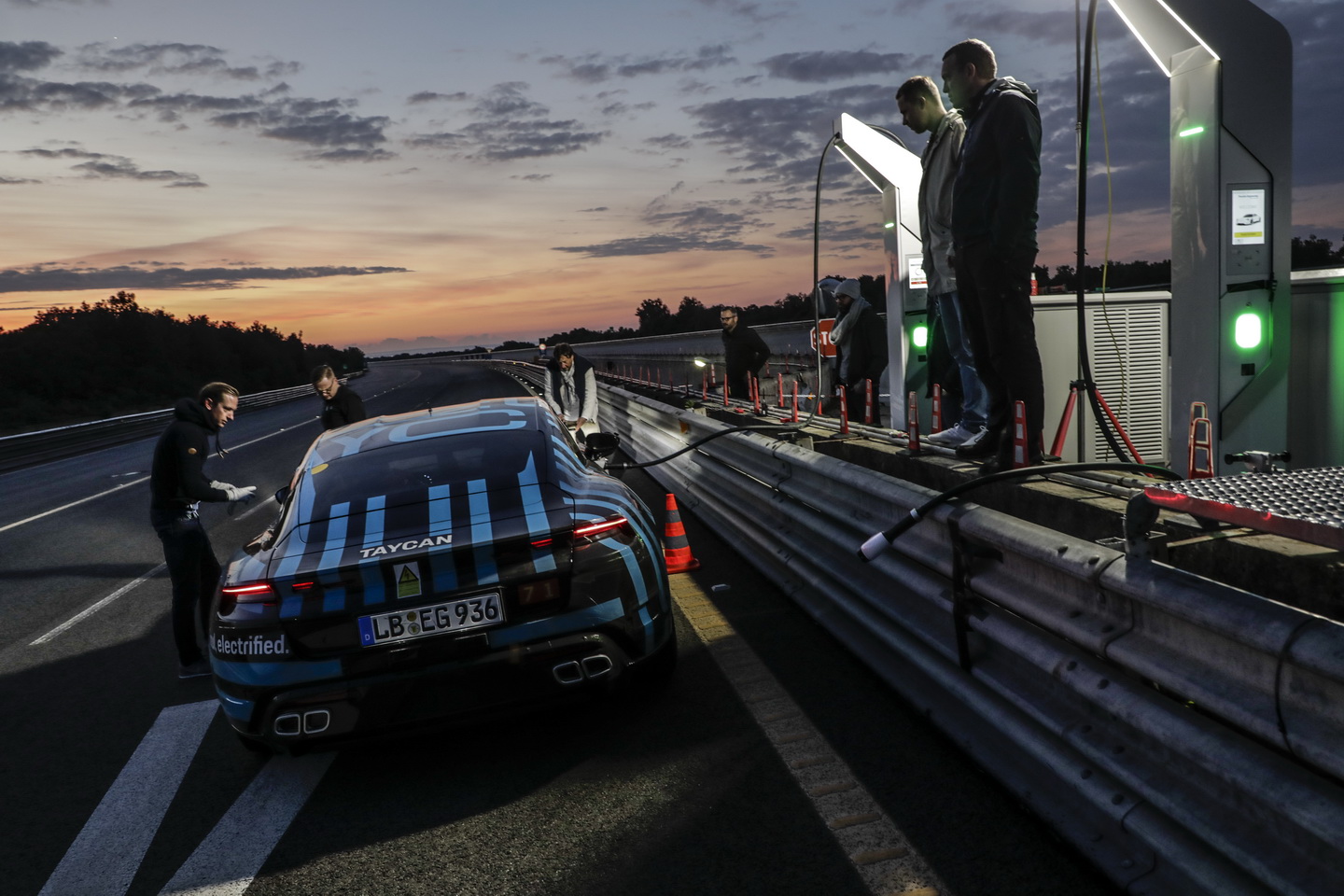
In 24 hours a pre-production Porsche Taycan electric supercar covered a distance of exactly 3,425 kilometres as part of a test at the Nardò high-speed track in Italy.
In sizzling temperatures at the southern Italian test track, the speed was between 195 and 215 km/h. With peak temperatures of 42 degrees Celsius and a track temperature of up to 54 degrees Celsius, the Taycan proved its long-distance qualities before the launch to the global media this coming September 4th.
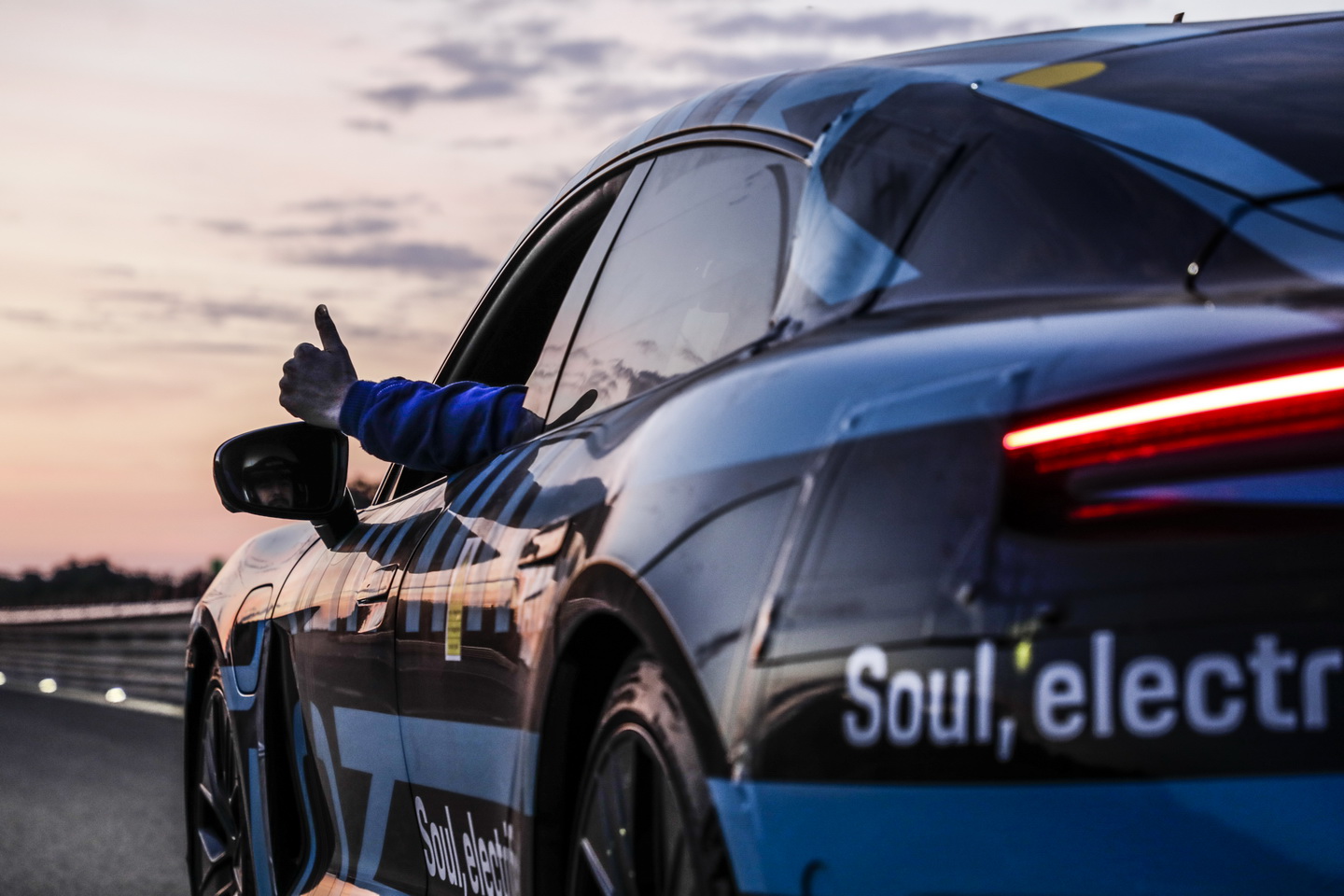
The test was carried out without interruptions, as the prototype Taycan merely had to pause for quick charging stops and driver changes. The team consisted of six Porsche test drivers. The quality assurance test took place as part of an endurance and hot climate test.
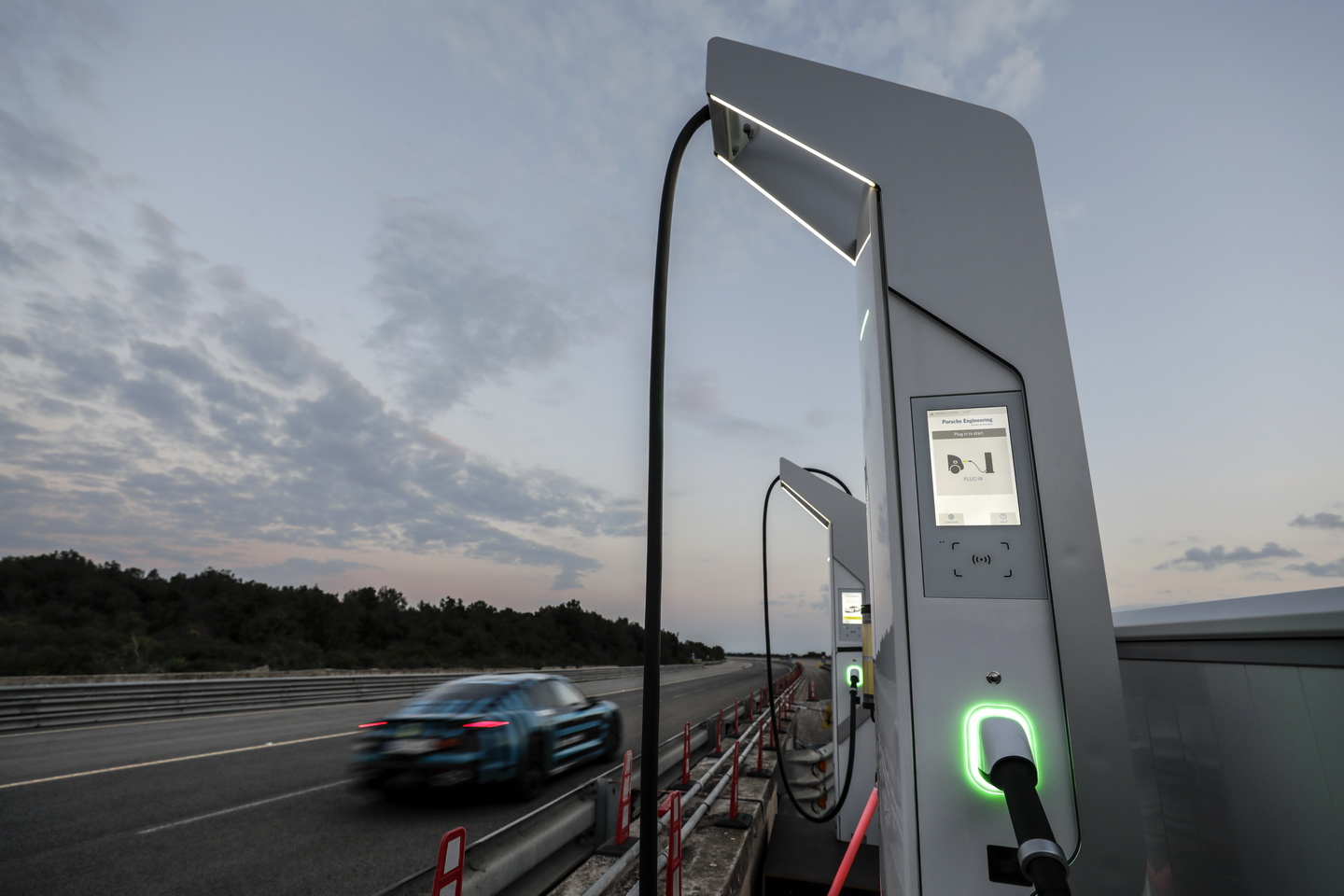
Stefan Weckbach, Vice President Product Line Taycan, was delighted to report that “the Taycan mastered this ambitious endurance run without any problems,” adding “the result achieved in Nardò highlights the advantages of the unique 800-volt technology and its high maturity level. Before the Taycan is launched on the market at the end of the year, we will have covered over six million test kilometres across the globe.”
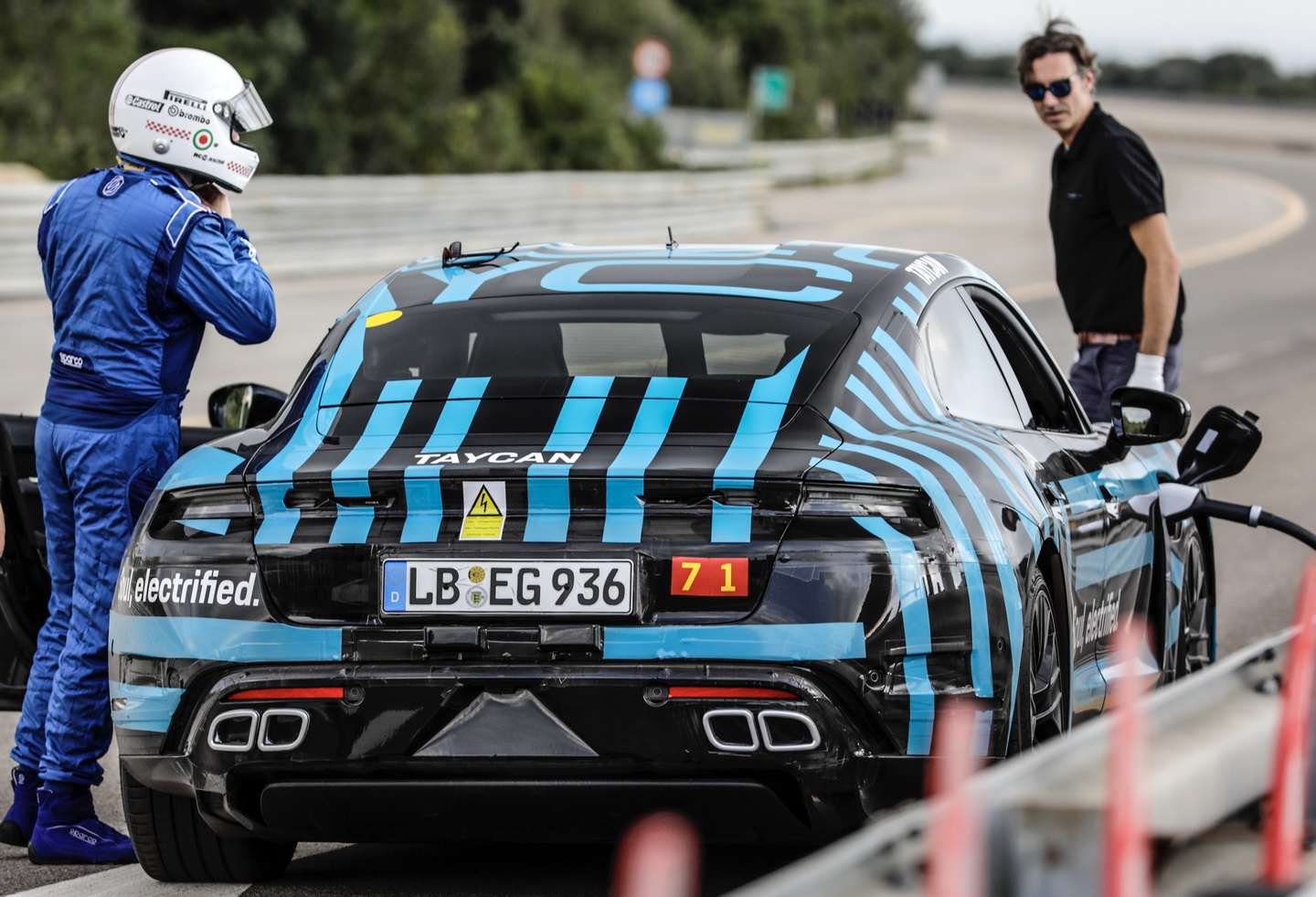
800-volt system
The Taycan is the first fully electric production vehicle with a system voltage of 800 volts. This technology helped the 919 Hybrid win the 24 Hours of Le Mans three times in a row and is now making the leap into series production.
The 800-volt technology enables consistently high performance, reduces the charging time and decreases the weight and the packaging space of the cabling. During the endurance test drive at the Nardò Technical Center, 800-volt high-power charging stations by Porsche Engineering Group GmbH were used.
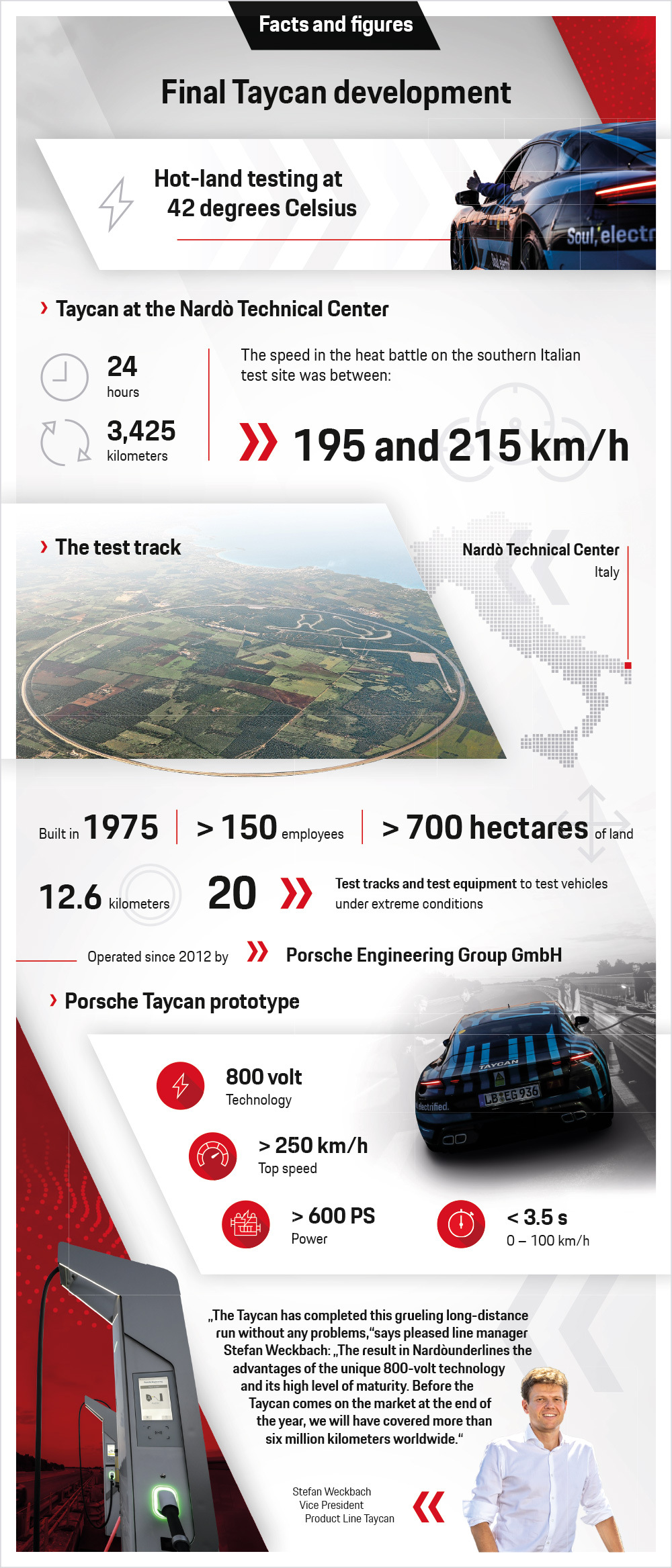
First all-electric sports car from Porsche
The new Porsche Taycan not only proves endurance. Its electric powertrain is designed in such a way that it can unleash its full power even after accelerating several times at short intervals. At the end of July a pre-series vehicle accelerated from 0 to 200 km/h no less than 26 successive times at an airfield. The average acceleration figure from the timed runs was under 10 seconds. The difference between the fastest and slowest acceleration run was 0.8 seconds.

